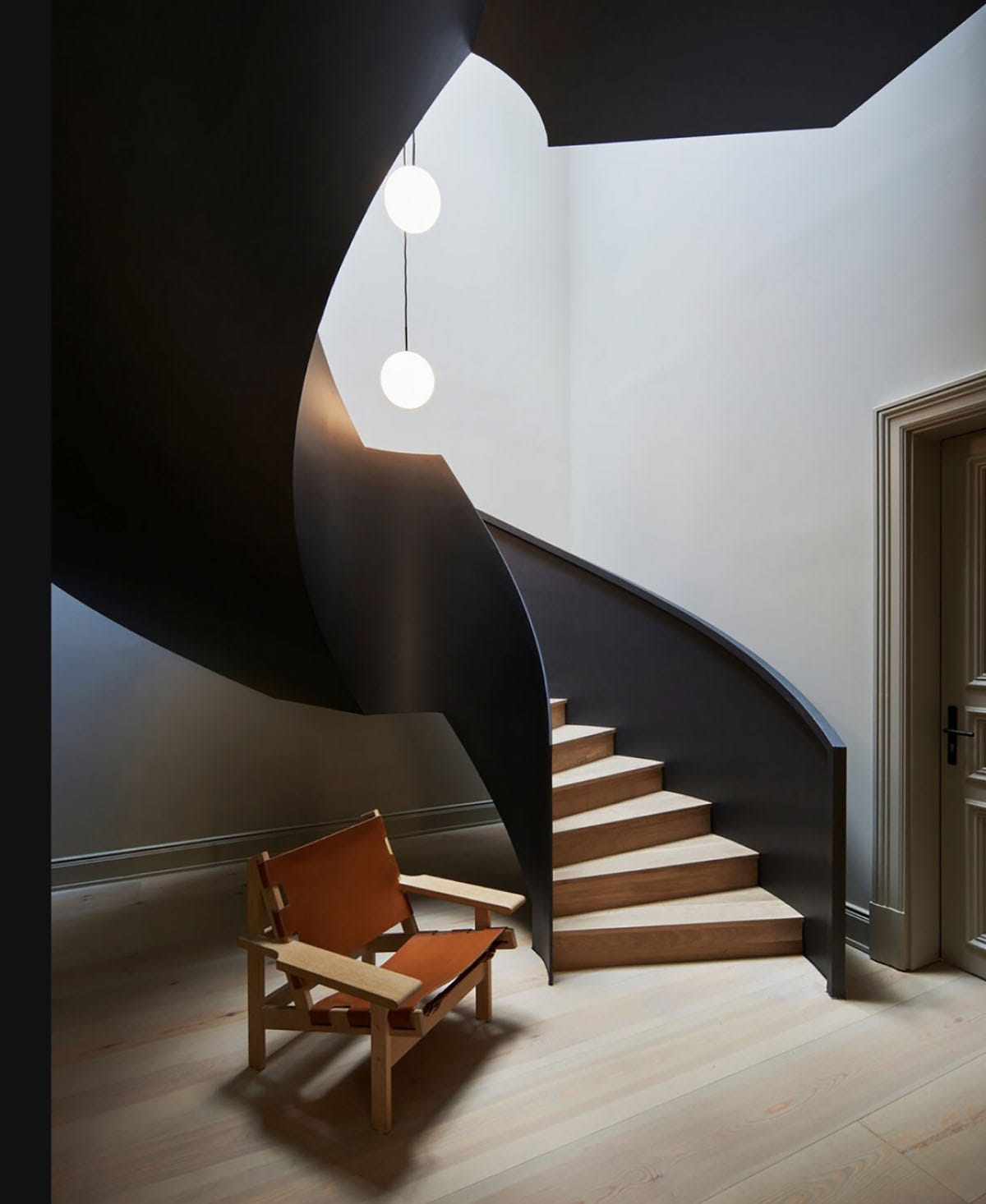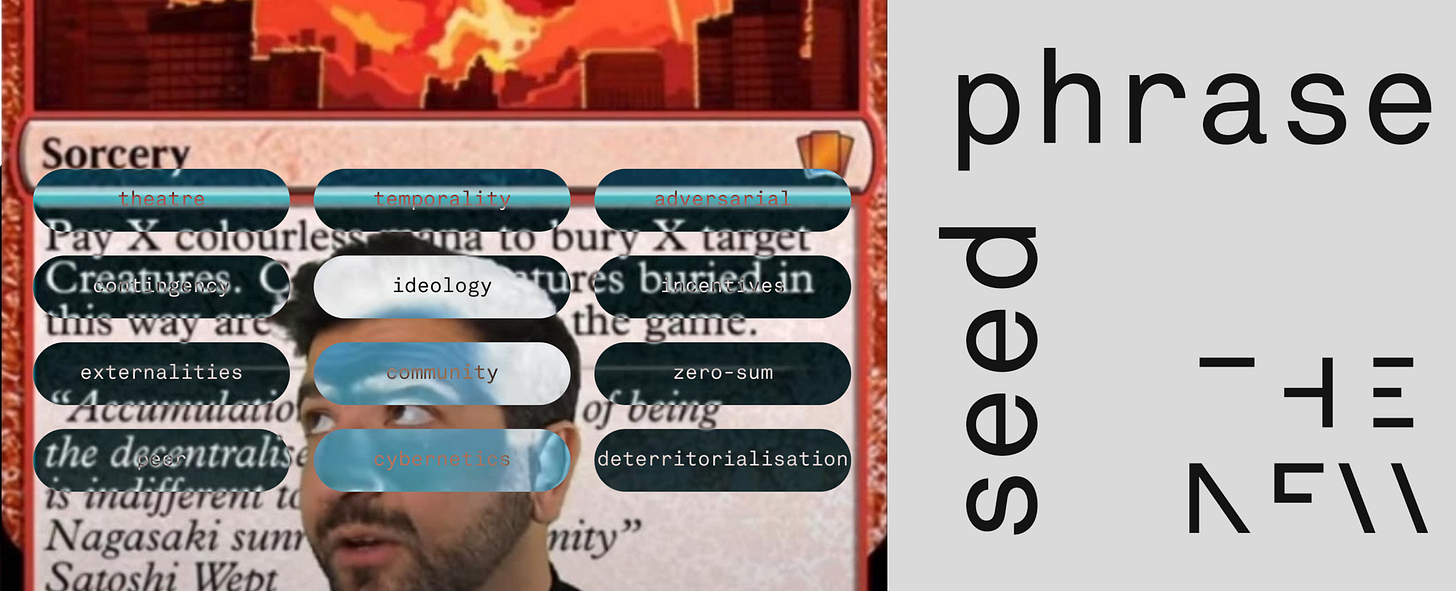01 Here they are, our new fellows
It was a special day: Our fellows for 2022–23 met for the first time in person on October 5 – at the Warburg Ensemble, but more about this later.
With special people: The fellows are what this institute is all about, and each year there is anticipation and a sense of new possibilities, uncharted territory, and a promise. Who are the fellows? What will they do at the institute?
Yes, who are they: They come from all over the world, including India, the United States, Germany, Israel, the Netherlands, Hungary, and Japan. We are pleased to welcome:
the theoretical physicist Harald Atmanspacher, who is a strong advocate of nonreductive thinking, most notably in the way we understand the relation between mind and matter;
Madhulika Banerjee, a political scientist who in the light of the climate crisis is examining marginalized, indigenous epistemologies;
the artist Anthea Behm, who is interested in the politics of form, especially as it relates to feminist concerns about power and bodies;
Ruth Chang, who teaches law at Oxford and will work with us on a new paradigm of rationality and its implications for law and artificial intelligence;
the filmmaker Shimon Dotan, who uses visual storytelling to create a bridge between opposing ideas and ideologies;
the political scientist Frederic Hanusch, who aims to shift the democratic paradigm from viewing societies as living on the planet to being part of the planet;
Max Krahé, a political economist investigating the relationship (and compatibility) of capitalism and democracy;
Bruno Leipold, a political theorist and historian of political thought working on connecting Marx’s social republic with theories of popular democracy;
the climate analyst Tabea Lissner, who assesses how climate impacts affect measures of well-being and prosperity, and how adaptation can be improved by considering holistic well-being;
the philosopher Maki Sato, who analyzes climate and energy policies, focusing on the implications of implied assumptions;
the political theorist Rahel Süß, who examines the extent to which liberal ideas have shaped our thinking of digitalization and democracy and how to radically reconceptualize both;
László Upor, a playwright, translator, editor, university professor, and advocate of intellectual freedom in Hungary and beyond;
the poet, essayist, and translator Anja Utler, who investigates how language can shift our thinking about the ecological state of the world;
Katinka Versendaal, who works in speculative gastronomy, exploring and shaping the future food landscapes of Hamburg;
Janine von Wolfersdorff, a financial expert and tax consultant who will develop accounting methods to measure environmental and social costs.
And there is more: Beyond their individual work, the fellows will also engage in shared projects. Each fellow is associated with one of the three programs of THE NEW INSTITUTE: Human Condition in the 21st Century,The Future of Democracy, and Socio-Economic Transformation.
Why this mattters: We live in a time of nested crises. Humanity is reaching a critical moment. Solving complex problems requires interdisciplinary research and trans-sectoral fellow groups, bringing academics together with practitioners from business, the arts, politics, media, and civil society.
02 Look at this, our new home
We've moved! We really liked our temporary domicile, the former laundry of a grand old hotel, but we did not move far. Our new home is just a few minutes away, and it is still close to the Alster in the center of Hamburg.
Welcome to the Warburg Ensemble: A set of nine 19th-century townhouses offering apartments for our fellows, offices for the team, meeting rooms, work areas, a conference space, contemporary art, a lovely library, a bookstore, and a lot of space for free thinking and experimentation.
The beauty of this all: The architect Jessica Klatten, building on prior work of Ilse Crawford and others, brought the old buildings back to life. She chose to return to a traditional Hanseatic style that seems bold and new in the context of today’s very clean and bright façades – different shades of gray for the façade, different shades of possibilities for the future.
Coming soon: The garden, the heart of the Warburg Ensemble, will only be available from next summer on; and we are curious how this place will feel now with all the fellows around.
So, it is unfinished? Yes, and we particularly like that about this place. It is a standing invitation to create something new from the old.
Check out more
03 Join us on our journey!
Our call for program chairs is open: Together with our academic directors, program chairs shape concrete topics and projects within programs as well as assemble fellow groups.
What are we looking for? People driven by curiosity and inspired by openness, who are willing to work collaboratively across disciplines, with a mission to translate knowledge into pathways to practical solutions.
The particulars: we are looking for scholars from the humanities and social sciences with innovative, future-oriented research in one of the program areas and a topic that has the potential of leading to concrete results with social impact and of attracting fellows with relevant expertise to carry out the project.
Learn more here
Source of inspiration: From our library
“One of the great advantages of libraries is that here – unlike in an ordinary bookshop, for example – you not only have access to the latest, often short-lived material but can equally draw from the well-filled repository of history. Design for the Real World dates from 1971 – the revised edition is from 1984 – but it is perhaps more relevant than ever. I understood here for the first time that designers don't necessarily have to be narcissistic gadget weirdos – sorry! – but can also be motivated by the desire to make the whole world a better, more sustainable, more livable place. The book has 127 illustrations and is highly entertaining, but also full of aha moments: if I were someone who scribbles in books – I'm not! – there would be an exclamation point or 'That's it!' behind every third or fourth sentence.”
Christiane Müller, head of the library, on Design for the Real World by Victor Papanek
04 Our new podcast: Seed Phrase
Out now! We just released a first podcast by one of our fellows, the artist Simon Denny. It is about the past and future of technology, how it interacts with democracy and capitalism, and of course the blockchain.
Why this is relevant: This podcasts charts the space for radical change – and connects with what we at the institute are doing in the project The New Hanse, working on data and democracy, and in some parts of the program on The Future of Democracy.
So isn't it niche? Yes and no; Simon talks to people who inspire him as an artist and who work at the exciting but often overlooked intersections between research on Web3 and entrepreneurship, consultancy and activism, community work and art. So, define “niche.”
What is a seed phrase? Twelve words that guard your digital assets, in a crypto wallet, for example. Still too complicated? These twelve words guide Simon’s conversation with his guests. Well, just listen.
Excited? Listen to the podcast on spotify, apple podcasts, or our website.
05 Workshop: Universities and democracy
Why is this relevant? Democracy is under threat – and universities have an important role to play in promoting democratic ideals and principles. What if we could turn the university itself into a democratic space?
It is connected: The workshop “Promoting Democracy through Universities” took place at the Haller Building, the center of our activities, on September 14 and 15. It was initiated by our fellow John Aubrey Douglass and centered around a paper he is writing on the topic. In attendance were the heads of leading universities from Germany and abroad, a few fellows, philosophers, and practitioners. The mix was right; the mood was optimistic.
Where does the optimism come from: There is the potential not only to use universities to strenghten the democratic fabric of societies under authoritarian threat, like Hungary – universities themselves can become more democratic. They can be a local knowledge incubator by improving society's trust in research.
We'll keep you posted: Ideas are still floating around – we don’t see this as a one-off but rather as the start of a longer process. We will soon have a space dedicated to this topic on our website.
This all seems new
And indeed it is: We have been reviewing our newsletters and processing the feedback from our summer survey. The result is a new, high-speed, and informative newsletter to help you stay connected and be part of our journey.
It’s a work in progress: That's why we value your input. What do you think of this new setup and design? Is there anything missing? Please drop us a line and let us know at newsletter@thenew.institute.
More is on its way: There is more to come, and we have many ideas up our sleeves.
So: Stay tunded; stay sane.



